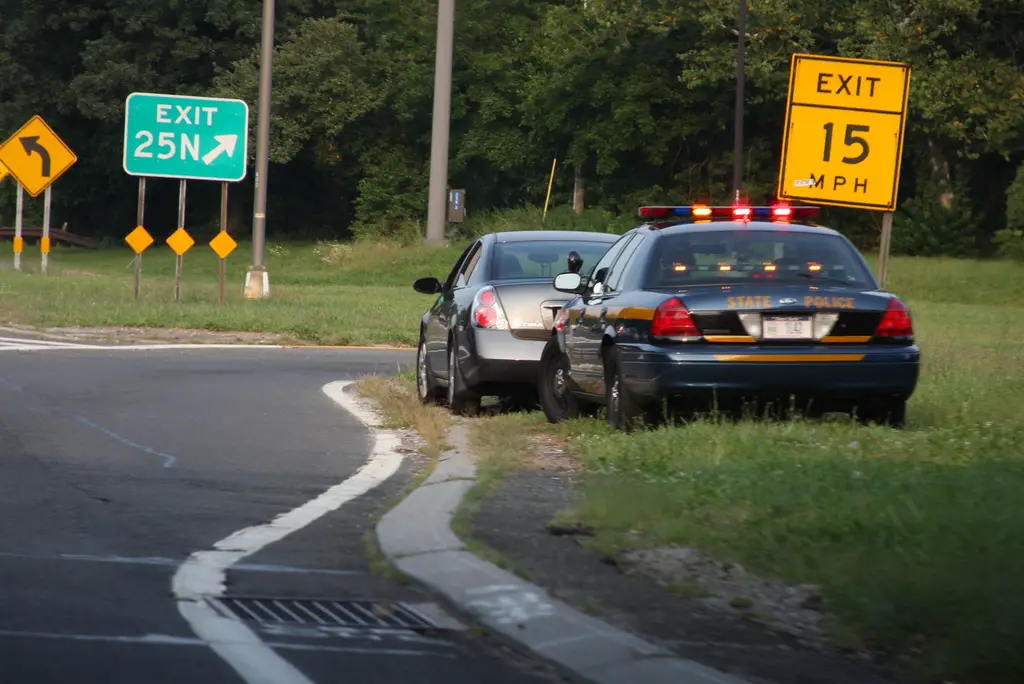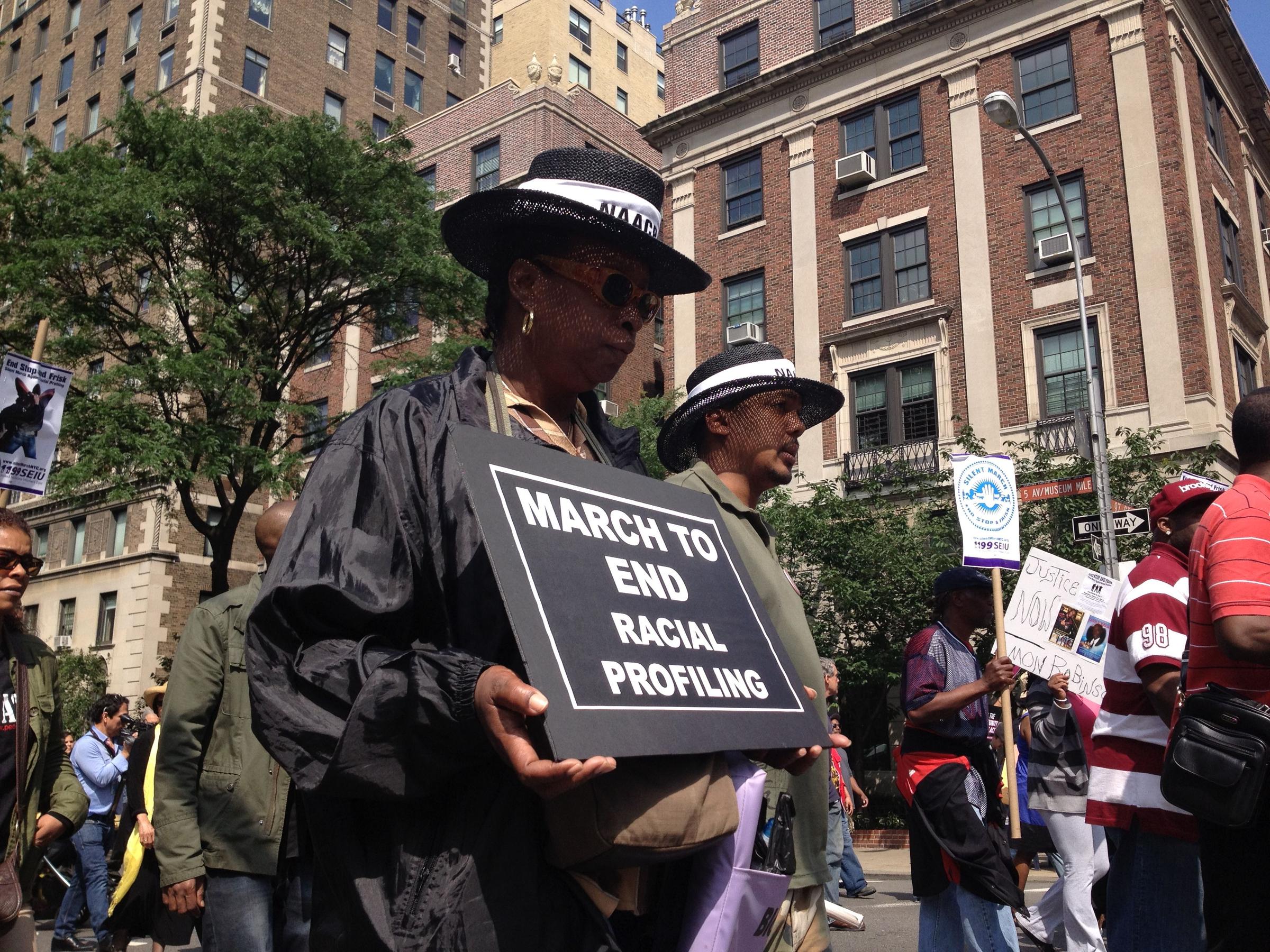Cruising the edge of the night, you’re enjoying the evening breeze as you listen to the radio replay the same songs over and over again. At the same time, you’re feeling exhausted and relieved that you’re almost home — until you see the flashing blue and red lights in your rearview mirror.
Immediately and while profusely sweating, you stop your car, believing that no traffic violations have occurred, or at the very least you hadn’t been speeding, right?
Lowering your side window, you wait for the police officer to come over and tell you what’s the matter. The police officer saunters up and mentions that one of your taillights is broken. He doesn’t give you a ticket and you say your goodnights. Shortly after, you see a similar car with a broken taillight driving past you, but not one police car goes after them.
Imagine a policeman stopping you every day for other trivial, likely false reasons such as a broken brake light or malfunctioning headlights. Unfortunately, this incident is not new for people of color, considering that deterring the practice of racial profiling — the use of race or ethnicity as grounds for suspecting someone of having committed an offense — remains an ongoing challenge.

Undoubtedly, the rise of racial profiling is embedded within the nation’s history of racism, particularly alongside the stereotype that African-Americans are more likely to be criminals than any other ethnicity.
Although racial profiling violates the U.S. Constitution — specifically the Fourth Amendment that promises its citizens “the right…to be secure in their persons, houses, papers and effects, against unreasonable searches and seizures” — racial profiling continues to thrive on the streets and is indicative of the lasting prominence and institutionalization of racism.
A couple of years ago, The Atlantic reported that Sen. Tim Scott of South Carolina was stopped seven times by law-enforcement officers. He recounts, “I do not know many African-American men who do not have a very similar story to tell no matter their profession, no matter their income, no matter their disposition in life.”
Because numerous African-Americans have several similar accounts of being stopped by the police, it directly suggests that police officers specifically target this specific group, thus lumping physical descriptions together and dehumanizing them overall.
Regardless of their nature, intellect, class or authority, African-Americans, along with other people of color such as Mexican-Americans, are frequently stopped by law-enforcement officers due to prejudiced training. As surprising as it may sound, these ethnic groups have all faced the same kind of discrimination at one time or another down the road.
For instance, even Trevor Noah, host of “The Daily Show,” has been frequently stopped by the police officers. His South African identity does not exempt him from racial profiling; he is only another black face waiting to be criminalized.
Sen. Scott also mentioned that one of his staff members drove a Chrysler 300, “‘a nice car, but not a Ferrari. He was pulled over so many times here in D.C. for absolutely no reason other than for driving a nice car. He sold that car to stop being targeted.’”
Clearly, roaming the streets with a nice car means you’re a danger to the community. In this case, Scott’s staff member notably went to great lengths by selling his beloved car in order to stop law-enforcement officers from tailing him.
Losing his mode of transportation was a sacrifice that he had to make in order to ensure his protection from being the next Philando Castile: the case of an innocent neighborhood man who was stopped for having broken brake lights and was brutally shot in front of his family.

Unfortunately, countless African Americans are stopped by police officers for trivial and pathetic reasons every day. Not only are they delayed from arriving at their desired destination, but they also become filled with fear, anxiety, anger, humiliation and shame afterward for being pulled over at a higher rate than any other minority.
Several states still have different stances on racial profiling; even worse, some actually allow racial profiling despite its infringement of the U.S. Constitution. For instance, the Oklahoma Watch recently reported that 58 complaints regarding alleged racial profiling have been filed since 2008.
Most of the complaints have been dismissed since the internal investigation could not find any substantial evidence. Generally, in Oklahoma, the police officers are not required to record or publish the data on who they stop and for what alleged offense the drivers committed. By recording the data, there would be solid identification and evidence that would indicate racial profiling.
In the same report, senior pastor of East Sixth Christian Church Jesse Jackson Jr. claims, “I think just about everyone in my congregation has a racial profiling story, but I don’t think many people make complaints because it is just part of the social fabric of our lives. We expect to be stopped and profiled for no reason.”
Within the state of Oklahoma, African-Americans being profiled has become a tradition, or rather, a routine that they unquestionably have to follow and accept, which is quite disheartening and baffling since law-enforcement officers are instantly assuming that they are criminals solely based on the color of their skin.
Recently, the U.S. News reported that the Racial Profiling Bill, the proposal that would have shielded African-Americans as well as people of color from being stopped by law-enforcement officers, died shortly after being introduced in the Alabama Legislature.
All Sen. Rodger Smitherman and House Speaker Mac McCutheon wanted was a fair ballot on the bill, but they didn’t even get that due to the mixed opposition and time constraints.
Evidently, the bill had successfully made its way through the stalling process; however, without the voting process, the voices of many people of color are once again silenced. Nevertheless, despite the plummet of progress, the battle is still not over, but its lengthening has certainly not disrupted the everyday flow of injustice faced by people of color.
To this day, racial profiling continues to be a flagrant struggle among people of color across the nation, even though it infringes upon basic moral grounds as well as the U.S. Constitution. It is incredibly discriminatory that people of color had and still have to face unnecessary encounters with police officers who exercise such an atrocious practice.
Ultimately, if police officers continue to racially profile, they are doing nothing but preserving racism in this nation.

















